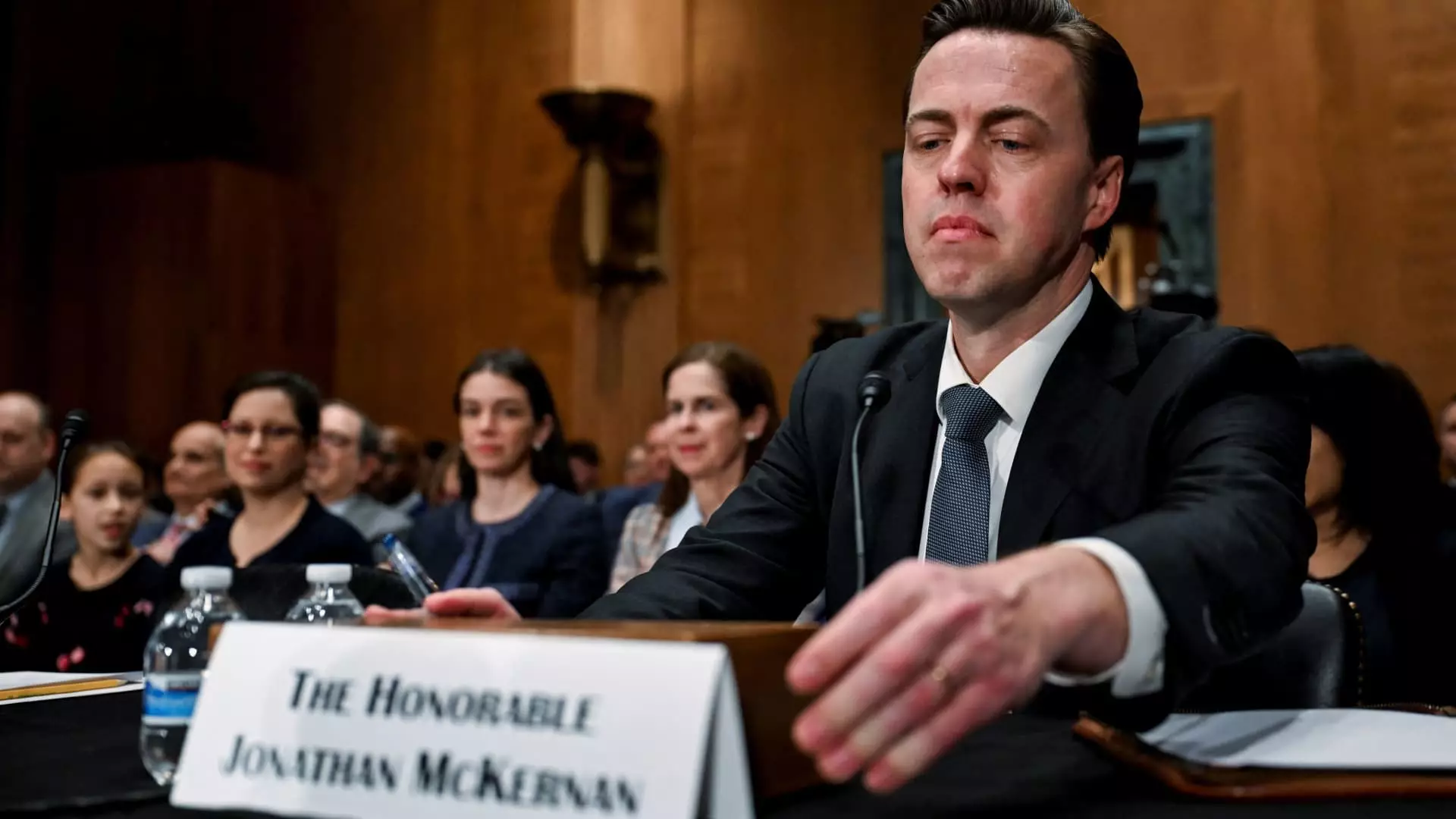The Consumer Financial Protection Bureau (CFPB) finds itself at a pivotal junction as Jonathan McKernan, nominated by President Donald Trump for the agency’s leadership, faces tough inquiries during his confirmation hearings. Senators, particularly from the Democratic party, are keen to assess his stance on the agency’s critical role in safeguarding consumer rights amidst what appears to be a politically charged environment. The scrutiny reflects not just a concern for the CFPB’s operational integrity but also the very essence of consumer protection in a financial landscape radically altered by the 2008 crisis.
The Weight of the 2008 Financial Crisis
McKernan, whose legal career coincided with the turbulence of the financial collapse, articulated a belief rooted in the aftermath of that crisis. His acknowledgment of a “financial regulatory system that works for everyday Americans” underscores a foundational principle for the CFPB. His insistence on consumer protection being central to financial regulation is a promising message, especially since the agency was established in response to widespread abuses that left consumers vulnerable. However, the path to realizing these ideals is fraught with challenges, particularly concerning the current administration’s apparent disinterest in the bureau’s effectiveness.
Resistance and Reality: Conflicting Perspectives
Despite McKernan’s commitment to uphold legal obligations, his comments regarding the CFPB’s previous administration raise alarms. Expressing disagreement with his predecessor Rohit Chopra, McKernan pointed out a “politicized manner” in the bureau’s operations, suggesting a need for significant reform. This rhetoric begs the question: can he truly reclaim the agency’s mission of consumer advocacy while distancing it from potential political influences? The tumultuous changes occurring under acting director Russell Vought, including staff reductions and the halting of critical operations, cast a shadow over any hopeful proclamations of accountability or reform.
With the prospect of the CFPB’s future being threatened, heightened fear surrounding its operational continuity is palpable. Reports indicating mass layoffs and the shuttering of the agency’s headquarters have provoked anxiety concerning its mission’s preservation. The dismissal of lawsuits against major financial entities only intensifies concerns about a retreat from consumer advocacy. Lawmakers, including Senator Elizabeth Warren, have raised alarms about the agency’s diminishing capacity to shield consumers, pinpointing the potential complacency that McKernan might inadvertently endorse by aligning with Trump’s administration.
During his testimony, the pledge to “follow the law,” alongside a commitment to establish essential consumer advocacy frameworks, stands as a critical focal point. Yet this assertion remains under scrutiny. The agency’s statutory obligations, including the provision of resources for military veterans and the elderly, are paramount components of its structure. The long-standing anxiety felt by senators suggests that McKernan’s assurances may be undermined by the political machinations of the Trump administration. Senator Warren’s poignant remark, likening McKernan’s nomination to being the “No. 1 horse at the glue factory,” symbolizes the skepticism surrounding whether he can genuinely fulfill the mission of consumer protection in an unfriendly political landscape.
As McKernan navigates this treacherous political terrain, the ultimate question remains: will he be able to champion the CFPB’s foundational mission amidst intensifying efforts to dismantle its authority? The agency’s fate hangs delicately in the balance between a focus on consumer welfare and political influences aiming to diminish its role. The ramifications of this leadership decision extend beyond the walls of the CFPB; they echo across the financial landscape affecting countless American consumers. With critical challenges looming, the necessity for a robust, independent agency dedicated to consumer protection has never been more apparent.

